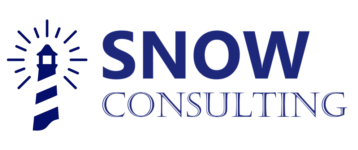Orphan Drug Designation Process
Let the Snow Regulatory Affairs Consulting team guide you through FDA Orphan Drug Designation Process
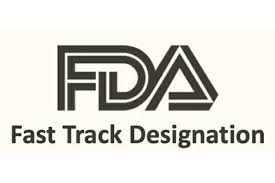 Allow Snow Regulatory Affairs Consulting to be your trusted partner in navigating the complex process of obtaining FDA Breakthrough Therapy Designation for your product. Our team of experts will work closely with you to develop a comprehensive strategy tailored to your specific needs, ensuring that your request is meticulously prepared and submitted in a timely manner. With our extensive experience and in-depth knowledge of regulatory requirements, we are committed to helping you accelerate the development and review of your product, ultimately bringing life-changing therapies to patients faster. Trust Snow Regulatory Affairs Consulting to guide you through every step of the FDA
Allow Snow Regulatory Affairs Consulting to be your trusted partner in navigating the complex process of obtaining FDA Breakthrough Therapy Designation for your product. Our team of experts will work closely with you to develop a comprehensive strategy tailored to your specific needs, ensuring that your request is meticulously prepared and submitted in a timely manner. With our extensive experience and in-depth knowledge of regulatory requirements, we are committed to helping you accelerate the development and review of your product, ultimately bringing life-changing therapies to patients faster. Trust Snow Regulatory Affairs Consulting to guide you through every step of the FDA
Breakthrough Therapy Designation
process, maximizing your chances of success.
 In summary, partnering with Snow Regulatory Affairs Consulting to navigate the FDA Breakthrough Therapy Designation process can greatly enhance your drug development strategy. Our specialized knowledge, strategic planning, and ability to streamline interactions with the FDA will not only expedite the process but also increase the chances of a successful outcome, ultimately bringing your product to market faster and more efficiently. So give us a call today at (714) 553-3736 or visit us online at regulatoryaffairsconsultants.com.
In summary, partnering with Snow Regulatory Affairs Consulting to navigate the FDA Breakthrough Therapy Designation process can greatly enhance your drug development strategy. Our specialized knowledge, strategic planning, and ability to streamline interactions with the FDA will not only expedite the process but also increase the chances of a successful outcome, ultimately bringing your product to market faster and more efficiently. So give us a call today at (714) 553-3736 or visit us online at regulatoryaffairsconsultants.com.
What are orphan drugs (defined)?
For a drug to qualify for Orphan Drug Designation, it must meet one of the following criteria:
- The Drug is intended for use in patients with a Rare Disease or Condition:
The drug is intended to treat a disease or condition affecting fewer than 200,000 people in the United States. Alternatively, if the disease affects more than 200,000 people, there should be no reasonable expectation that the cost of developing and marketing the drug will be recovered from sales in the United States. Cumulatively, there are more than 10,000 rare diseases affecting more than 30 million Americans.
- Significant Benefit: The drug must offer a substantial therapeutic advantage over existing treatments or be the sole treatment available for the condition.
- The disease or condition is serious or life-threatening.
- Unmet Medical Need: The biologic or drug is intended to treat, diagnose or prevent the disease or condition in patients with an unmet medical need.
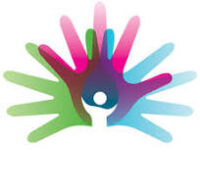
Incentives for Sponsors
-
Tax Credits for qualified clinical trials
 Tax credits are available for clinical trials that are part of the development process for drugs designated as orphan drugs. These trials must assess the safety and effectiveness of the drug for treating a rare disease or condition. The Orphan Drug Act in the United States provides a tax credit covering 25% of the qualified clinical testing expenses incurred during the development of an orphan drug. These tax credits encourage pharmaceutical companies to invest in developing treatments for rare diseases by offsetting the high costs and lower potential profits associated with orphan drugs.
Tax credits are available for clinical trials that are part of the development process for drugs designated as orphan drugs. These trials must assess the safety and effectiveness of the drug for treating a rare disease or condition. The Orphan Drug Act in the United States provides a tax credit covering 25% of the qualified clinical testing expenses incurred during the development of an orphan drug. These tax credits encourage pharmaceutical companies to invest in developing treatments for rare diseases by offsetting the high costs and lower potential profits associated with orphan drugs.
-
Exemption from User Fees
Application Fee: Sponsors of orphan drugs do not have to pay the application fees when submitting their NDAs or BLAs.
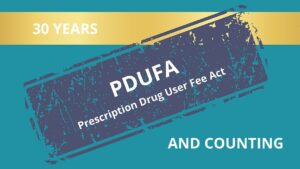
This can save sponsors a significant amount of money upfront. For the fiscal year 2024 the current user fee for applications requiring clinical data is $4,048,695.
Product Fee: Once the orphan drug is approved, sponsors are exempt from paying the annual product fees that are normally required for each approved drug product. For the fiscal year 2024 the current Prescription Drug User Fee Act (PDUFA) product fee $25,209.
Establishment Fees: Sponsors are also exempt from the annual establishment fees for manufacturing sites involved in producing the orphan drug. For fiscal year 2024, the PDUFA establishment fee is set at $400,659.
-
Market Exclusivity for 7 years after approval
 Orphan drugs receive seven years of market exclusivity in the United States. This means that for seven years after the drug is approved, no other company can market the same drug for the same indication, even if they have completed their own research and development.
Orphan drugs receive seven years of market exclusivity in the United States. This means that for seven years after the drug is approved, no other company can market the same drug for the same indication, even if they have completed their own research and development.
FDA Orphan Drug Designation Process
- Eligibility Determination: The drug must be intended for the treatment, diagnosis, or prevention of a rare disease or condition, which generally affects fewer than 200,000 individuals in the United States.
- Application Submission: Submit a request for Orphan Drug Designation to the FDA. This includes detailed information about the drug, its potential benefits, and the scientific rationale for its use in treating the rare disease.
- Evaluation by FDA: The FDA reviews the application to assess whether the drug meets the criteria for orphan status. This includes evaluating the medical and scientific data provided.
- Granting of Orphan Drug Designation: If granted, the drug receives Orphan Drug Designation, providing various benefits such as tax incentives, protocol assistance, and potential marketing exclusivity upon approval.
- Annual Reporting: Maintain Orphan Drug Designation status by submitting annual reports to the FDA, detailing progress in drug development and any changes in the drug’s status.
- Clinical Trials and Approval: Proceed with clinical trials and seek FDA approval for the drug. Orphan Drug Designation does not guarantee approval but can streamline the regulatory process and provide incentives for development.
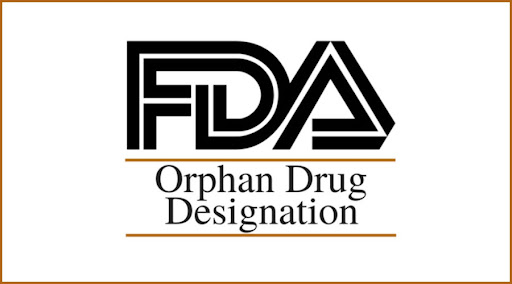
Recent Orphan Drug Designations
- LP-284 by Lantern Pharma:
This drug received orphan drug designation for high-grade B-cell lymphomas (HGBL). LP-284 is currently being evaluated in a phase 1 trial for patients with relapsed or refractory lymphomas and solid tumors (OncLive).
- SGT-003 by Solid Biosciences:
This gene therapy candidate for Duchenne Muscular Dystrophy (DMD) also received orphan drug designation. The company expects to start patient dosing in the first quarter of 2024 (Solid Biosciences Inc.).
- PGN-EDO51 by PepGen:
This investigational therapeutic for DMD received both orphan drug and rare pediatric disease designations. PepGen is currently conducting a phase 2 trial to evaluate PGN-EDO51 (Jett Foundation).
Connect with Snow Regulatory Affairs Consulting
 In summary, partnering with Snow Regulatory Affairs Consulting to navigate the FDA PSP/IPSP process can greatly enhance your drug development strategy. Our specialized knowledge, strategic planning, and ability to streamline interactions with the FDA will not only expedite the process but also increase the chances of a successful outcome, ultimately bringing your product to market faster and more efficiently. So give us a call today at (714) 553-3736 or visit us online at regulatoryaffairsconsultants.com. For further information or to discuss how I can assist with your specific needs, please feel free to contact me. Together, we can navigate the regulatory landscape and bring innovative treatments to pediatric patients in need.
In summary, partnering with Snow Regulatory Affairs Consulting to navigate the FDA PSP/IPSP process can greatly enhance your drug development strategy. Our specialized knowledge, strategic planning, and ability to streamline interactions with the FDA will not only expedite the process but also increase the chances of a successful outcome, ultimately bringing your product to market faster and more efficiently. So give us a call today at (714) 553-3736 or visit us online at regulatoryaffairsconsultants.com. For further information or to discuss how I can assist with your specific needs, please feel free to contact me. Together, we can navigate the regulatory landscape and bring innovative treatments to pediatric patients in need.
Click here to engage with our regulatory experts and explore with us questions you may have.
It All Starts With a consultation!
We look forward to discussing your needs with you!
For any kind of Regulatory Affairs inquiries, Please call
tim@gotresults.net
